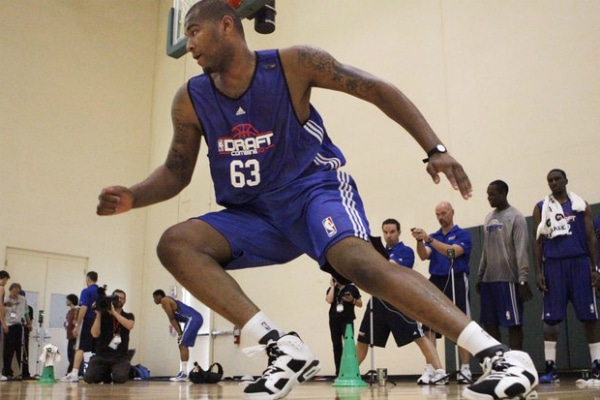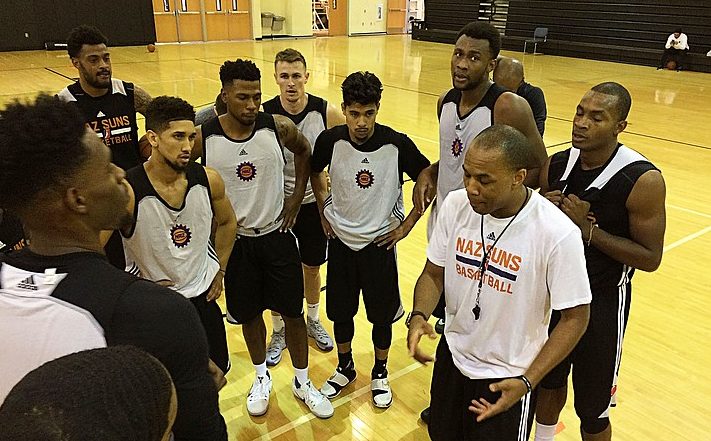
Teaching Life Skills Through Basketball: How to Teach Your Players to Succeed
Basketball is not only a sport but also a powerful platform for teaching essential life skills. Coaches have the opportunity to influence players’ personal development by integrating valuable lessons into their training and gameplay.
This basketball article explores how basketball can be used to teach life skills and offers practical strategies for basketball coaches to incorporate these lessons into their practices and interactions with players.

1. Building Teamwork and Collaboration
a. Importance of Teamwork:
Unity:
Basketball is inherently a team sport where success depends on the collective effort of all players. Coaches can use this aspect to teach the value of working together toward a common goal, demonstrating how individual contributions lead to collective success.
Support:
Encourage players to support each other both on and off the court, emphasizing the importance of cooperation and mutual respect. When players learn to trust and rely on their teammates, they develop a sense of camaraderie that extends beyond the game.
b. Practical Strategies:
Group Drills:
Incorporate drills that require players to work together, such as basketball passing drills and team-oriented exercises. Activities like “3-on-2, 2-on-1” teach players how to collaborate under pressure, reinforcing teamwork.
Team-Building Activities:
Organize activities and challenges that promote teamwork and problem-solving. Off-the-court basketball exercises like ropes courses or team discussions about goals and values can also help build basketball team chemistry, unity, and collaboration.

2. Developing Leadership Skills
a. Leadership Opportunities:
Captains and Roles:
Assign leadership roles such as team captains or designated leaders for specific team basketball drills. This helps players develop leadership skills and take responsibility for their actions, both in guiding their peers and setting an example.
Role Models:
Encourage experienced players to mentor younger teammates, fostering a culture of leadership and guidance. This teaches the more experienced players how to lead by example and gives younger players someone to look up to.
b. Practical Strategies:
Leadership Drills:
Design basketball competition drills that require players to lead and make decisions, such as setting up offensive basketball plays or organizing defensive schemes. These drills develop confidence and decision-making abilities in potential leaders.
Encourage Communication:
Promote open communication among players and provide opportunities for them to lead team discussions or strategy sessions. This helps them practice basketball leadership in an inclusive and supportive environment.
3. Enhancing Communication Skills
a. Effective Communication:
On-Court Communication:
Stress the importance of clear and concise communication during games and basketball practices. Players should learn to give and receive feedback constructively to build better team coordination.
Listening Skills:
Teach players to listen actively and respond thoughtfully, both during team meetings and in game situations. Developing listening skills is crucial for understanding instructions, strategizing, and building strong relationships.
b. Practical Strategies:
Communication Drills:
Implement drills that focus on verbal and non-verbal communication, such as calling out plays or making eye contact during passes. These exercises reinforce the need for quick, clear, and effective communication on the court.
Feedback Sessions:
Create opportunities for players to practice giving and receiving feedback in a supportive environment. This encourages open dialogue and promotes personal and team growth.

4. Teaching Discipline and Work Ethic
a. Importance of Discipline:
Consistency:
Emphasize the importance of discipline in maintaining a consistent work ethic, both in practices and games. Disciplined players are more likely to show up, put in the effort, and push through challenges.
Time Management:
Teach players how to manage their time effectively, balancing basketball with other responsibilities and commitments. This life skill is crucial for balancing academics, sports, and personal life.
b. Practical Strategies:
Structured Practices:
Maintain a structured practice schedule and hold players accountable for their punctuality and effort. Regular routines help players understand the value of discipline and consistency.
Goal Setting:
Encourage players to set personal and team goals, and develop plans to achieve them through discipline and hard work. Goal setting teaches focus, perseverance, and the importance of incremental progress.
5. Promoting Resilience and Adaptability
a. Overcoming Adversity:
Handling Setbacks:
Use game situations and challenges to teach players how to handle setbacks and stay resilient in the face of adversity. Whether it’s losing a game or facing personal challenges, resilience helps players maintain a positive attitude.
Adaptability:
Encourage players to be adaptable and flexible, adjusting their strategies and mindset as needed. This skill is essential both on the court and in everyday life, where circumstances can change rapidly.
b. Practical Strategies:
Challenge Drills:
Implement basketball team drills that simulate game pressure and require players to adapt their tactics and stay focused. This teaches players how to stay calm and adjust in high-pressure situations.
Resilience Workshops:
Conduct workshops or discussions on overcoming challenges and developing a resilient mindset. Share stories of players or teams who have bounced back from difficult situations to inspire perseverance.

6. Fostering Responsibility and Accountability
a. Personal Accountability:
Ownership:
Teach players to take ownership of their actions, both positive and negative, and understand their impact on the team. Responsibility promotes self-discipline and leadership qualities.
Responsibility:
Encourage players to be responsible for their roles and duties, whether it’s attending practice, maintaining their equipment, or supporting their teammates. Accountability helps players build trust within the team.
b. Practical Strategies:
Individual Goals:
Set individual goals for players and hold them accountable for their progress and performance. This instills a sense of personal responsibility and pride in their achievements.
Reflection Sessions:
Implement regular reflection sessions where players can evaluate their performance and discuss areas for improvement. Reflective practices teach players how to assess their actions and take steps toward bettering themselves.
7. Instilling a Strong Work Ethic
a. Commitment to Excellence:
Effort and Dedication:
Emphasize the importance of putting in effort and dedicating time to improve skills and performance. Players should understand that success is a product of continuous hard work and persistence.
Role Modeling:
Lead by example and demonstrate a strong work ethic in your own basketball coaching practices and interactions with players. Players are more likely to adopt a strong work ethic when they see their coach living it out.
b. Practical Strategies:
Work Ethic Drills:
Incorporate basketball drills that require intense effort and focus, reinforcing the value of perseverance and dedication. Drills that push physical and mental limits help players understand the rewards of hard work.
Recognition:
Acknowledge and reward players who consistently demonstrate a strong work ethic and commitment to their development. This reinforces the importance of effort over just winning.
8. Encouraging Healthy Lifestyle Choices
a. Physical Fitness:
Training and Conditioning:
Promote the importance of physical fitness and proper basketball training as part of a healthy lifestyle. Encourage players to maintain their physical health through regular exercise and proper conditioning.
Nutrition and Hydration:
Educate players on the importance of proper nutrition and hydration for optimal performance and overall health. Healthy habits developed through sports can last a lifetime.
b. Practical Strategies:
Fitness Programs:
Integrate fitness and conditioning programs into practices and emphasize their role in enhancing performance. Strength and conditioning basketball drills can be combined with skill development to ensure a well-rounded fitness plan.
Health Education:
Provide resources and education on healthy eating and lifestyle habits. Hosting discussions or workshops on nutrition can help players make better choices on and off the court.

9. Teaching Goal Setting and Achievement
a. Setting Goals:
Personal and Team Goals:
Guide players in setting both personal and team goals, and help them develop strategies to achieve them. Learning how to set realistic and achievable goals is a life skill that extends far beyond sports.
Motivation:
Emphasize the role of goal setting in maintaining motivation and focus. Players who have clear goals are more likely to stay dedicated and driven.
b. Practical Strategies:
Goal Setting Workshops:
Conduct workshops or discussions on effective goal setting and achievement strategies. Teach basketball players how to set SMART (Specific, Measurable, Achievable, Relevant, Time-bound) goals.
Progress Tracking:
Implement systems for tracking progress toward goals and celebrating milestones. Whether it’s a chart, verbal check-ins, or team discussions, tracking progress ensures accountability and motivation.
Teaching Life Skills Through Basketball Conclusion:
Basketball provides an invaluable platform for teaching life skills that extend beyond the court. By incorporating these strategies into coaching practices, coaches can help basketball players develop essential skills such as teamwork, leadership, communication, discipline, resilience, and more.
Teaching life skills through basketball not only enhances players’ performance but also prepares them for success in all areas of their lives.



